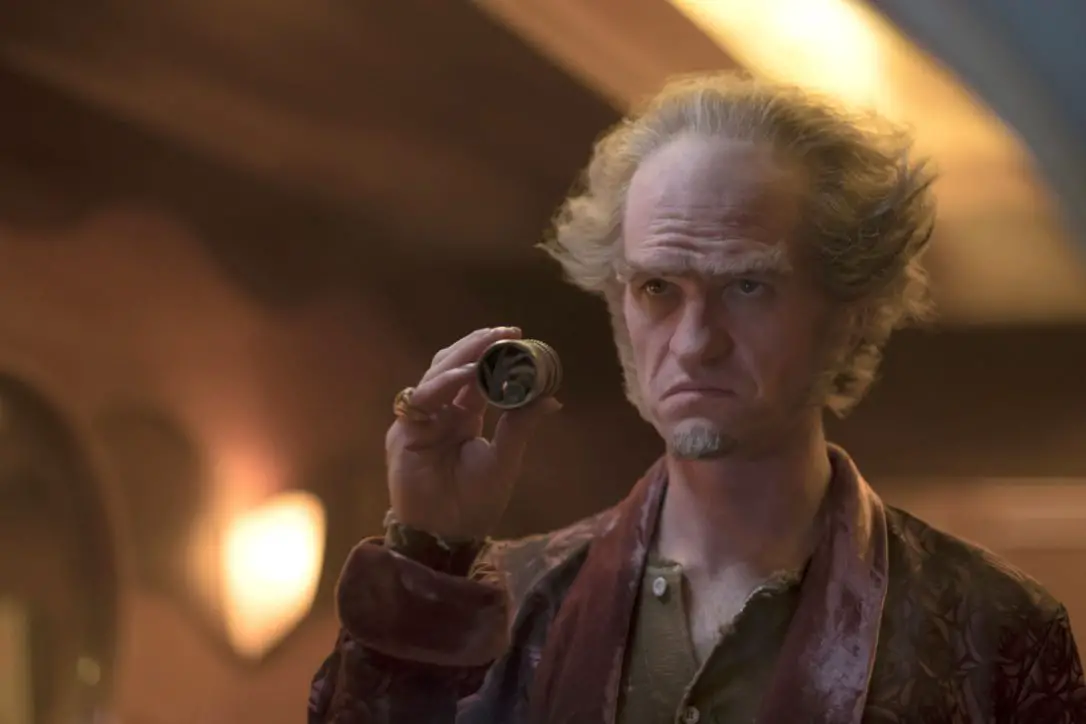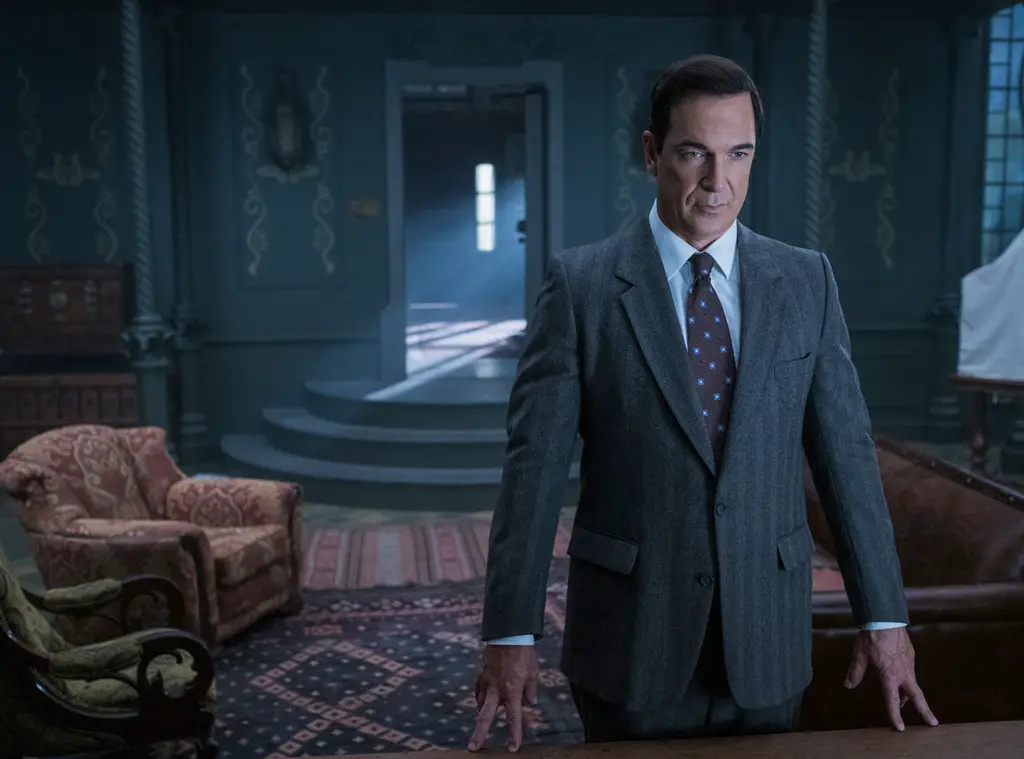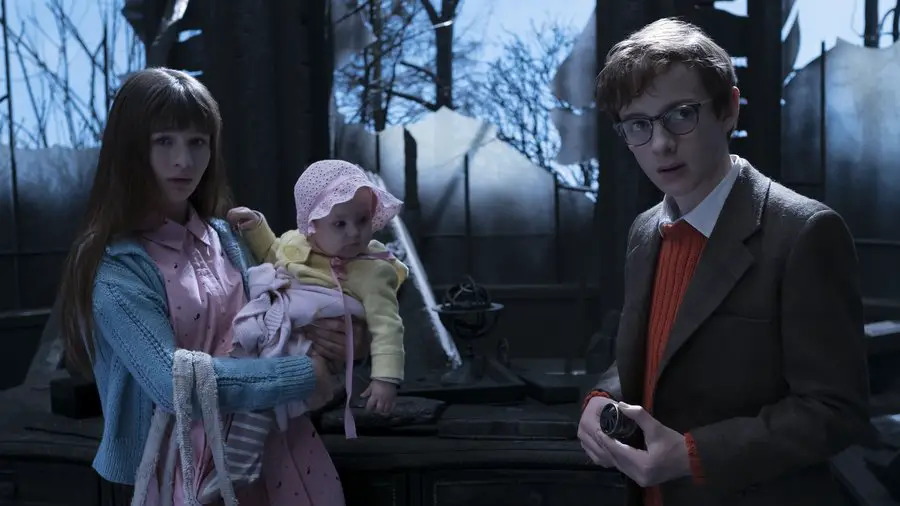Something Dreadful Has Come to Netflix
Fans of the series will find the witty idiosyncrasies of its author perfectly preserved in the eight-part release.
By Joanne Paquin, Emerson College
All marketing leading up to the Friday the 13th premiere of Netflix’s “A Series of Unfortunate Events” forewarned viewers of the terrible and trying tribulations the Baudelaire orphans would undergo in the eight-episode series.
In the beginning of each episode, viewers are cautioned that “every single episode is nothing but dismay,” and Lemony Snicket, the show’s narrator, even provides viewers with ample opportunities to change the channel.
Despite what the show’s backers and leading characters may recommend, don’t heed their advice. The theme song of “A Series of Unfortunate Events” may cry “look away, look away,” but do the opposite. Pay attention and behold the tremendous television series that is “A Series of Unfortunate Events,” a Netflix creation that combines witty acting, morbid humor and scrutinized detail to bring justice to the book series in a way the 2004 movie adaption never could.
The Dedicated Details
Violet, Klaus and Sunny Baudelaire are the show’s heroes—three orphaned youngsters, wise beyond their years—that find themselves under the guardianship of cruel and vicious actor Count Olaf, a unibrowed, skeletal man that only wants the Baudelaire’s inherited fortune.
The thirteen-book series details the precarious situations the Baudelaires find themselves in after the death of their parents, and the Netflix series makes a remarkable attempt at staying true to those original stories. The eight-episode series dedicates two episodes to each of the first four novels, allowing for detailed exploration into the books that brings out the witty charm of the original stories that made the series so lovable in the first place.
Longtime fans of the Baudelaire’s story may catch the numerous, subtle allusions the show made toward the original works, including the copious and subdued references to VFD, the secretive organization that plays a prominent role in the novels.
And Lemony Snicket’s lines are almost always direct quotes from the book series, a definite nod to the original work.
However, as all book-to-television series do, “A Series of Unfortunate Events” did take some liberties with the adaption. Lemony Snicket, who was hardly more than a narrator in the novels, becomes a full-fledged character in the show. The VFD is not as elaborately explained in the books as it is in the television series. And Count Olaf, while portrayed as a scheming fool in the Netflix series, certainly felt more cunning and sinister in the novels.
That’s not to say the adaptions made by Netflix were poorly done, and they certainly do not draw away from the main story—that of the Baudelaire children. Rather, they actually help bring the story to life and convey the distinctive voice found in Lemony Snicket’s novels on the big screen.
The Adept Actors
While the story of the Baudelaire children itself is hard to describe as entertaining because of its grim nature, the joy of watching “A Series of Unfortunate Events” stems from the incredible acting of the show’s cast, which is strewn with familiar faces—Joan Cusack, Aasif Mandvi, Alfre Woodard, Rhys Darby, Don Johnson and Catherine O’Hara.
Neil Patrick Harris, a beloved actor known for playing Barney Stinson in “How I Met Your Mother,” brings a cruel and vivacious aura to Count Olaf. There are moments when Harris portrays Count Olaf as an aloof goon—stumbling over words and getting into petty arguments with his henchmen—and there are moments when he portrays Olaf as the terrifying and devious villain he really is, sometimes within seconds of each other. And the transitions are always seamless.

There are also many moments in the show when Neil Patrick Harris is not only playing Count Olaf, but is playing him disguised as another character. In other words, Harris is playing a character who is a bad actor “acting” as another character, and Harris never seems to lose sense of that base personality.
The Baudelaire children, played by Malina Weissman, Louis Hynes and Presley Smith, are portrayed as stoic, quick-thinking individuals that are more aware of their situations and counterparts than the willfully ignorant adults caring for them. While the world falls apart around them, the actors represent their characters as collected children taking everything in stride, while others surely would have fallen apart from the frustration.
And Patrick Warburton, iconically cast as the voice of Kronk in the “Emperor’s New Groove,” expertly takes on the role of Lemony Snicket, the story’s narrator. His voice, though hardly varying in tone, is anything but monotonous and tells the children’s story with colorful words, definitions and descriptions. And though he never sheds a tear or finds emotion in his voice, Warburton easily conveys the pain felt by Lemony Snicket, making his character a heartbreaking individual.
The Witty Wording
What made “A Series of Unfortunate Events” such an intriguing book series was the wonderfully poetic way in which the books were written. The author, Lemony Snicket—a pen name for Daniel Handler—didn’t just “tell” the story of the Baudelaire orphans.
He played with the English language to add entertainment and joy to a despairing story, and to call attention to some bewildering aspects of language, such as the way we sometimes read a sentence more than once such as the way we sometimes read a sentence more than once, or mistake the difference between words of similar meanings, such as literally and figuratively. He also taught his young readers a slew of advanced vocabulary by defining words within the story in a way that didn’t feel like you were reading a dictionary.

Through the inclusion of Lemony Snicket as an actual character in the series, Netflix was able to include the witty writing style of Daniel Handler, which is what really makes this show so incredible. Snicket not only defines numerous words for the viewers, but he also uses alliteration, wordy repetition and comical exaggerations that make “A Series of Unfortunate Events” not just fun to watch but fun to listen to.
Lemony Snicket isn’t the only character to have this wonderfully wordy way of speaking, but all the characters participate in it—even little Sunny who’s all goos and gurgles—which adds color and vibrancy to the grim story, as well as bits of much-needed humor.
At one point in the series, Lemony Snicket warns viewers that, “If you’re interested in stories with happy endings, that story is streaming elsewhere.” And while this is true—you won’t find any happy endings in “A Series of Unfortunate Events”—again, don’t heed Snicket’s advice. While the story is grim, the methods of storytelling are not. This Netflix creation is wildly original, visually appealing and pleasing to any literary or book junkies looking to have some fun with words.

















